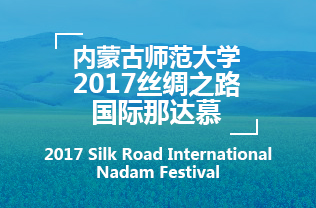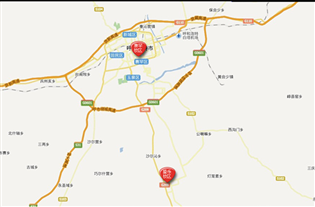College of Physical Education
Founded in 1952, the College of Physical Education of IMNU has a history of more than 60 years. When Inner Mongolia Normal College, IMNU’s predecessor, came into being in 1952, a sport section was created at the time, based on which the Department of Physical Education was set up in 1958. In 1960, the department was merged with the then Inner Mongolian Sport Commission to form the Inner Mongolia College of Physical Education. The college was canceled in 1963, so the Department of Physical Education returned to Inner Mongolia Normal College again. In 1982, it was renamed the Department of Physical Education of IMNU. Following an merger with the Department of Physical Education in 1997, the College of Physical Education of IMNU took shape. It spun off the Department of Physical Education in 2006.
Being the first to offer sport programs in China's ethnic minority areas, it now boasts the best faculty, the largest number of disciplines, the highest teaching standards and the best education facilities of its kind in Inner Mongolia. It is the cradle of various sport talents in the region as well as from the Mongolian ethnic groups in eight Chinese provinces and autonomous regions.
The College of Physical Education consists of the Physical Education Department, the Department of Athletic Training, and the Department of Social Sports; the General Office, the Office of Students' Affairs, the Office of Graduate Students' Affairs, and the Venue Management Office; the Competition Training Division; the Experiment Center; and the Institute of Sport Science and the Institute of Traditional Mongolian Ethnic Sports. The college serves as a research and promotion center for IAAF Kids' Athletics, a national training center for social sports instructors, a sports culture research center under the General Administration of Sport of China, a national training center for school PE teachers in traditional sports, and Inner Mongolia's research center for social science of sport. It is also a leading institution for the promotion of gymnastic Qigong, and has also made outstanding contributions to the promotion of Judose. Furthermore, it is a sponsoring unit for the Inner Mongolia Institute of Physical Education and Training.
Teaching and training facilities at the college include two stadiums with facilities for basketball, volleyball, table tennis, gymnastics, martial arts, track and field, wrestling and judo, weightlifting and fitness keeping. There is a synthetic athletics field, a throwing field, 36 outdoor basketball and volleyball courts, eight tennis courts, and a natatorium. The school also has laboratories for motion analysis, sports anatomy, sports physiology, functional evaluation, sports health and sports psychology.
The college offers undergraduate programs in Physical Education, Athletic Training, and Social Sport Guidance and Management. Graduate programs in Sport Science cover the sub-disciplines of Humane and Sociological Science of Sports, Kinesiology, Physical Education and Exercise Science, and Traditional Chinese Sports. Also available in MPE and M.Ed (Physical Education) professional degree programs, the Physical Education Curriculum and Pedagogy program, and master's programs for college teachers and on-the-job students. Professional master's degree programs allow both full-time and on-the-job studies.
While attaching importance to teaching and research, the school also works to improve sports skills and techniques. With more than 20 years' experience in recruiting and training highly competent athletes, it now recruits high-level sports teams in track and field, soccer, wrestling and judo. The college has made remarkable achievements in athletic training, having trained an Olympic champion, four National Games champions, six Asian Games champions, and 23 champions in national competitive events. Students from the school won two golds, three silvers and three bronzes while taking 5th position in seven events and 7th in two events at the 12th National Games of China held in 2013.
Currently, the college has close cooperation and exchanges with universities around the world, including the Western Michigan University of the US, Japan's Tottori University, South Korea's Chungwoon University, the Ikh Zasag University of Mongolia, the Mongolian State University of Education, and Russia's Buryat State University.



 Print
Print Mail
Mail

